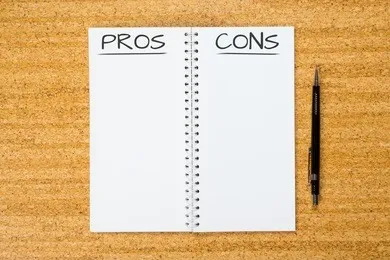Do you wish to expedite your loan repayment and minimize interest payments? One effective approach is to make bi-monthly loan repayments, which offers several advantages. However, it is crucial to consider the appropriateness of this strategy, as it may be ineffective or even costly in certain situations. Therefore, the question arises: which payment frequency is preferable, monthly or biweekly? This essay will provide a comprehensive explanation of both options.

Understanding Biweekly Loan Repayments
If you have a loan, you have the option to accelerate its repayment. One such option to consider is a biweekly (every two weeks) installment schedule.
Biweekly loan repayments involve dividing the payments into 26 equal half installments over a period of 13 years. This payment schedule can be a suitable alternative for individuals seeking to increase their mortgage payments without making a significant financial commitment.
Process of Biweekly Property Installments
Under this payment scheme, a mortgage installment is due on the first day of each month. It includes the repayment of the principal, interest, and an additional amount if you are paying real estate taxes, homeowners coverage, mortgage premiums, and HOA dues into a deferral account.
Initially, a significant portion of each installment you make goes towards interest, allowing the creditor to earn a substantial amount while making minimal progress in reducing the principal balance. For example, a 30-year debt with $1,500 monthly installments would result in an annual mortgage repayment of $18,000. In contrast, opting for a biweekly payment schedule would involve making 26 installments of $750, amounting to $19,500 per year.
Pros and Cons of Biweekly Mortgage Payments
Making biweekly loan repayments offers the allure of minimizing interest costs and accelerating debt repayment. However, it is crucial to understand the drawbacks and implications associated with this approach.
Pros
Increase in home equity: Making additional loan repayments is an effective method to increase equity in your home. As you make extra annual payments, the amount of equity you own in your home grows. This allows you to accumulate equity more rapidly and efficiently.
Earlier mortgage payoff: Biweekly payments can help you pay off your mortgage sooner. By making payments more frequently, you reduce the overall term of your loan, enabling you to become mortgage-free earlier.
Simplified budgeting: Having a biweekly mortgage repayment can simplify budgeting, especially if you receive a biweekly salary. With a consistent amount being allocated towards your loan from each paycheck, you won't need to worry about adjusting your payments.
Potential interest savings: Some creditors allow you to apply additional annual mortgage payments directly to the principal of your debt. By doing so, you can reduce the principal balance more quickly, resulting in potential annual interest savings amounting to thousands of dollars. A pro tip would be to utilize the money saved from interest payments to start a retirement fund.
Cons
Increased housing costs: More frequent mortgage installments may result in fewer funds available for other expenses. This can impact your ability to invest in retirement funds, repay other debts, or even afford leisure activities such as visiting family.
Possible set-up charge: Some lending organizations may require a set-up charge to enroll in a biweekly mortgage repayment schedule. Additionally, each transaction may come with a cost in the form of a mortgage payment. While some organizations offer this service free of charge, it is advisable to confirm with your mortgage provider.
Long-term commitment: Enrolling in a mortgage payment plan entails a commitment to making biweekly repayments, as monthly switching is not permitted. Therefore, if you do not wish to make a legally binding promise to pay more, this type of repayment schedule may not be suitable.

Biweekly vs. Monthly Payments
Most individuals opt for monthly payments when it comes to mortgage loans, as they involve submitting installments once a month. This option is popular due to the convenience of making payments on the same day each month, making it easier to remember. Many people also choose automated mortgage payments for added convenience, ensuring timely payments with minimal effort.
While monthly payments simplify budgeting, they may not necessarily be the most optimal choice for paying off your mortgage quicker. Throughout the duration of your mortgage, you will pay more in interest compared to biweekly installments, regardless of whether your loan rate is low, fixed, or flexible. While making 12 payments a year may be convenient, it can result in paying more than necessary for your home.
By opting for biweekly payments instead of monthly installments, you utilize the yearlong calendar to your advantage. With biweekly payments, you make 26 repayments annually instead of 12. Although each installment is equivalent to half of the monthly amount, you effectively make an additional month's payment each year. For example, if your monthly payment is $1,400, you would now pay $700 every two weeks. Due to some months being longer than others, you end up making 13 monthly payments per year, totaling $18,200.
Similar to making an additional payment per year to expedite principal repayment, biweekly payments enable you to achieve this outcome without experiencing a significant negative financial impact. Although an extra payment annually may not seem substantial, biweekly payments still offer a more advantageous approach compared to monthly payments.
Conclusion
The statement suggesting that biweekly payments can reduce interest rates and expedite mortgage repayment is accurate. Therefore, it may be advisable to consider biweekly payments as an alternative to monthly payments. However, it is equally important to carefully evaluate the disadvantages associated with biweekly payments before making a decision.
Please let me know if there's anything else I can assist you with!
(Images from the internet)





